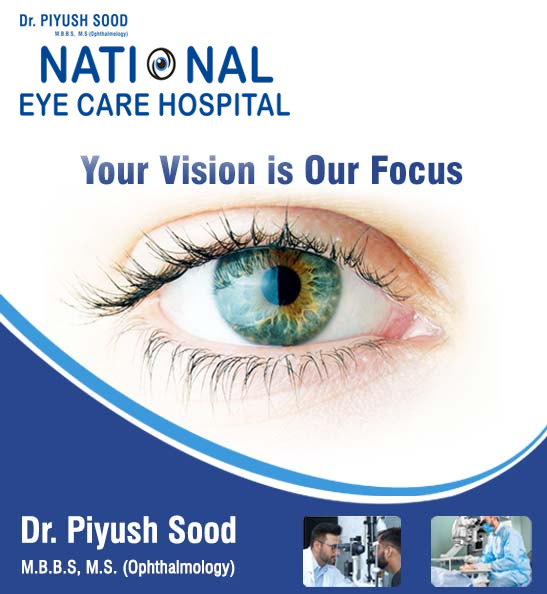Andalusia Eye Facility: Introducing Vision Look After Neighborhood Wellness
Andalusia Eye Facility: Introducing Vision Look After Neighborhood Wellness
Blog Article
Is Refractive Surgical Procedure Right for You? Factors to Take Into Consideration for Better Eyecare
In the realm of eye treatment, the decision to undergo refractive surgical treatment is a significant one that requires thoughtful consideration. From the intricacies of one's eye health and wellness to the ins and outs of personal assumptions and daily practices, each aspect holds significance in the wider landscape of refractive surgical treatment candidacy.
Eye Wellness Examination
When thinking about refractive surgical treatment, an extensive eye wellness evaluation is essential to examine the suitability of the procedure for every person. eye center andalusia. This examination involves a collection of examinations and evaluations performed by an eye treatment professional to identify the overall wellness of the eyes, the visibility of any hidden problems, and the security of the refractive mistake
During the evaluation, numerous variables are thought about, such as the patient's clinical history, present eye prescription, corneal density, student dimension, and tear film high quality. These assessments assist to identify any type of contraindications to refractive surgical treatment, such as corneal problems, cataracts, or neglected eye infections. Additionally, the examination helps to take care of individual assumptions relating to the possible results of the surgical treatment based on their one-of-a-kind eye attributes.
Eventually, the eye health assessment is necessary in ensuring the security and efficiency of refractive surgical treatment, as it supplies important understandings into the person's eye wellness condition and assists identify the most suitable treatment options for attaining optimal aesthetic results. (eye center andalusia)
Lifestyle Analysis
An extensive way of life assessment is indispensable in figuring out the suitability of refractive surgical procedure for an individual's aesthetic correction requirements. Lifestyle aspects such as occupation, leisure activities, and daily tasks play a vital role in the decision-making procedure regarding refractive surgical procedure.
Moreover, lifestyle practices such as sports participation, outdoor activities, or also skin care regimens can affect the healing process and overall success of refractive surgery. By conducting an extensive lifestyle assessment, eye care professionals can tailor their referrals and therapy strategies to fulfill the distinct needs of each person, inevitably leading to enhanced visual end results and contentment.
Assumption Positioning

Clients require to comprehend that while several individuals attain 20/20 vision or better complying with refractive surgery, some may still call for glasses for certain tasks like analysis or driving at night. Taking care of these expectations assists protect against frustration and frustration post-surgery, leading to a more positive total experience for the patient.
Danger Evaluation

Factors that might increase the danger of complications consist of age, certain clinical conditions like autoimmune conditions, unsteady vision prescription, thin corneas, and impractical patient assumptions. Additionally, picking a knowledgeable and competent doctor, complying with pre and post-operative care directions vigilantly, and divulging any appropriate clinical history can aid mitigate risks.
To decrease the probability of complications, eye doctors conduct thorough pre-operative assessments to recognize any contraindications to surgical treatment. They also go over the possible threats and advantages with patients during the assessment process. By engaging in open communication and shared decision-making, both the individual and the eye doctor can interact to establish if refractive surgical procedure is the appropriate selection based upon specific danger accounts and preferred results.
Assessment Significance
Thinking about the important function of notified decision-making in evaluating dangers and prospective problems in refractive surgery, the assessment process holds significant relevance in leading people in the direction of ideal results. During the consultation, the eye doctor examines the client's eye health, refractive mistakes, and general suitability for surgery. This first analysis is Source vital in identifying the most ideal treatment for each person, taking right into account elements such as corneal density, student size, and existing eye problems.
Additionally, the assessment acts as a possibility for individuals to discuss their assumptions, worries, and any inquiries they might have relating to the surgical treatment. Clear interaction between the surgeon and the person is important to ensure here are the findings practical expectations and a detailed understanding of the prospective threats and benefits entailed.
Additionally, the appointment enables the surgeon to describe the different medical alternatives available, their corresponding outcomes, and the post-operative care needed. This comprehensive discussion equips people to make well-informed decisions concerning their eye treatment, resulting in much better satisfaction and results post-surgery.
Verdict
To conclude, individuals taking into consideration refractive surgery ought to go through a thorough eye health assessment, examine their way of living habits, align their expectations with possible end results, analyze the connected dangers, and focus on appointments with eye care experts. These aspects play a vital function in figuring out the suitability of refractive surgical treatment for each and every person, ensuring ideal outcomes and contentment with the procedure.
Patients taking into consideration refractive surgical treatment usually have high assumptions pertaining to the outcomes, anticipating best vision without the demand for glasses or call lenses. While refractive surgical procedure can significantly boost vision and minimize reliance on aesthetic aids, it is crucial for patients to understand that outcomes might vary based on private aspects such as the degree of refractive error, corneal density, and total eye health and wellness.
By engaging in open communication and shared decision-making, both the individual and the eye doctor can work together to figure out if refractive surgery is the ideal option based on specific risk accounts and desired outcomes.
Thinking about the essential function of notified decision-making in assessing risks and possible problems in refractive surgical procedure, the examination procedure holds considerable significance in leading patients towards optimum outcomes. During the assessment, the eye doctor examines the individual's eye wellness, refractive mistakes, and general suitability for surgical procedure.
Report this page